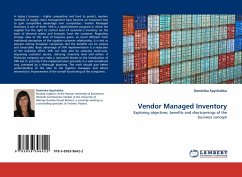Master's Thesis from the year 2004 in the subject Business economics - Business Management, Corporate Governance, University of Teesside, language: English, abstract: Corporate culture has gained importance in the business world in the last two decades. The consideration of corporate culture, nevertheless, differs significantly in organisations. Some organisations have taken their corporate culture into account for strategic decisions (e.g. cultural fit during Mergers & Acquisitions) but other organisations have tended to neglect this issue at all.Deal and Kenndy (1999) consider corporate culture as a hidden success factor of organisation which ensures commitment of the employees. According to them (1999), organisations with a 'strong' corporate culture outperform "run-of-the-mills companies by a massive margin".Corporate culture, nevertheless, has been a controversially discussed topic in the literature on which different general 'best practices' had been suggested by academics. However, it can be argued that the few empirical studies of corporate culture, notably Kotter and Heskett's (1992) quantitative survey, have been methodologically limited (Alvesson, 2002), e.g. to few senior managers of the examined organisations. Therefore, this project employs, besides interviews with senior managers of the three examined German organisations, a survey which is focused on employees of different hierarchical and divisional levels in one organisation. The findings of the research clearly show that corporate culture is a far more heterogeneous phenomenon than many academics suggest.In this research, corporate culture appears as a network of interrelating cultural patterns which is unique to different organisations due to different organisational and environmental challenges. The survey also identified that the perceptions of corporate culture differ between senior management and the employees. Therefore, the employees' perception of the corporate culture must be taken into account in order to prevent cultural dichotomy. Furthermore, the senior management should implement a sustainable process of monitoring the development of corporate culture. Continuous monitoring enhances the understanding of the organisation and the consequences of managerial actions. Consequently, this can help to raise commitment and efficiency of the workforce.
Hinweis: Dieser Artikel kann nur an eine deutsche Lieferadresse ausgeliefert werden.
Hinweis: Dieser Artikel kann nur an eine deutsche Lieferadresse ausgeliefert werden.








